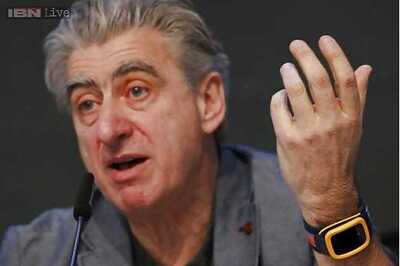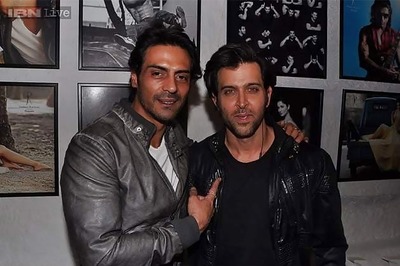
views
Nearly two months after scientists globally marched to support research, facts and a scientific temper in the face of rising ignorance to climate change and fund cuts, Indian scientists answered the call. August 9 saw scientists across 30 Indian cities hit the streets for the first time in the country, demanding the government not only increase funding for crucial basic research, but also stop supporting the “unscientific beliefs and superstitions” being propagated as science.
The march, through a memorandum to Prime Minister Narendra Modi, demands that India increases its spending on scientific research to 3% of the GDP, from the current 0.85%, and that “the Government uphold Article 51A of the Constitution, and restrain attempts that run counter to the development of scientific temper, human values and spirit of inquiry enshrined in the Constitution”.
The global march was triggered by the hostility shown by United States President Donald Trump to climate science, threatening the world's efforts to mitigate climate change, along with fund cuts to the fundamental research, and what scientists called a rising trend of anti-intellectualism.
India, said Professor Soumitra Banerjee from IISER Kolkata, is facing similar problems. Banerjee is the general secretary of the Breakthrough Science Society, a Bengal-based organisation that helps spread experimentation and scientific knowledge in schools, and that helped organise Wednesday's march. “This was spontaneous movement among the scientific community in India,” said Banerjee, to spread some awareness about what science means.
“People look at a satellite or a rocket or a few prestigious institutions and think that science is just those few success stories,” said Dr. Soumya Swaminathan, Director General of the Indian Council of Medical Research, the country's apex research body. “They don't understand the everyday basic research has to happen for years before such an outcome.”
Though not part of the march, Swaminathan supported the effort to spread and understanding of what scientific research entails and that it needs money. “All science is incremental, years of research happens on molecules before a vaccine or a drug can be developed,” she said, pointing out that industries run on the work that goes on at places like ICMR and the Tata Institute of Fundamental Research (TIFR), for example. In an earlier interview to News18, Swaminathan had admitted that the government did not put in nearly enough money that was needed.
Citing China’s example, she said that by investing nearly 3% of their GDP in research, the country had made significant progress and brought back their scientists from westerns countries. “Our scientists cannot stay in India because of the lack of funding for their work,” said Banerjee adding that money was going instead into research related to studying the cow, into Panchvganya.
“A recent conference at IIT Delhi received 39 proposals related to the cow, things like cleaning up the Ganga using cow urine,” said Banerjee. According to him, the funding given by the Department of Science and Technology (DST) and by the Council for Scientific and Industrial Research (CSIR) hasn't increased in real terms for years, limiting the work that people can undertake. Yet there is now money for Panchgavya. “This may be a passing trend, but the symptoms for it encroaching into scientific are there,” said Banerjee.
Scientists supporting the march say the need is to recognise the actual contributions made by ancient Indians, often whitewashed by the European school of science history, rooted in the Enlightenment period. However, this is getting lost in talk of interplanetary travel and cosmetic surgery during the Vedic ages. This had been publicly denounced by Indian Nobel laureate V Ramakrishnan Anne. He even refused to attend the Indian Science Congress last year.
“People think that science is just a career options, they accept what's written in textbooks the way people used to accept what's written in the Bible,” said Banerjee. “Science teaches to and progresses by asking questions.” “In India,” he added, “we have a habit of accepting whatever is traditionally said or done. That's how our natural curiosity gets channeled into superstition.”
The march has asked 10% of the GDP be put into education so that students don't learn through rote or by swallowing formulae and equations but have access to experimenting. “India needs a groundswell of support and understanding for science. Without public perception it's unlikely anything will change,” said Swaminathan. The march, however, is as good a stepping stone as any.




















Comments
0 comment